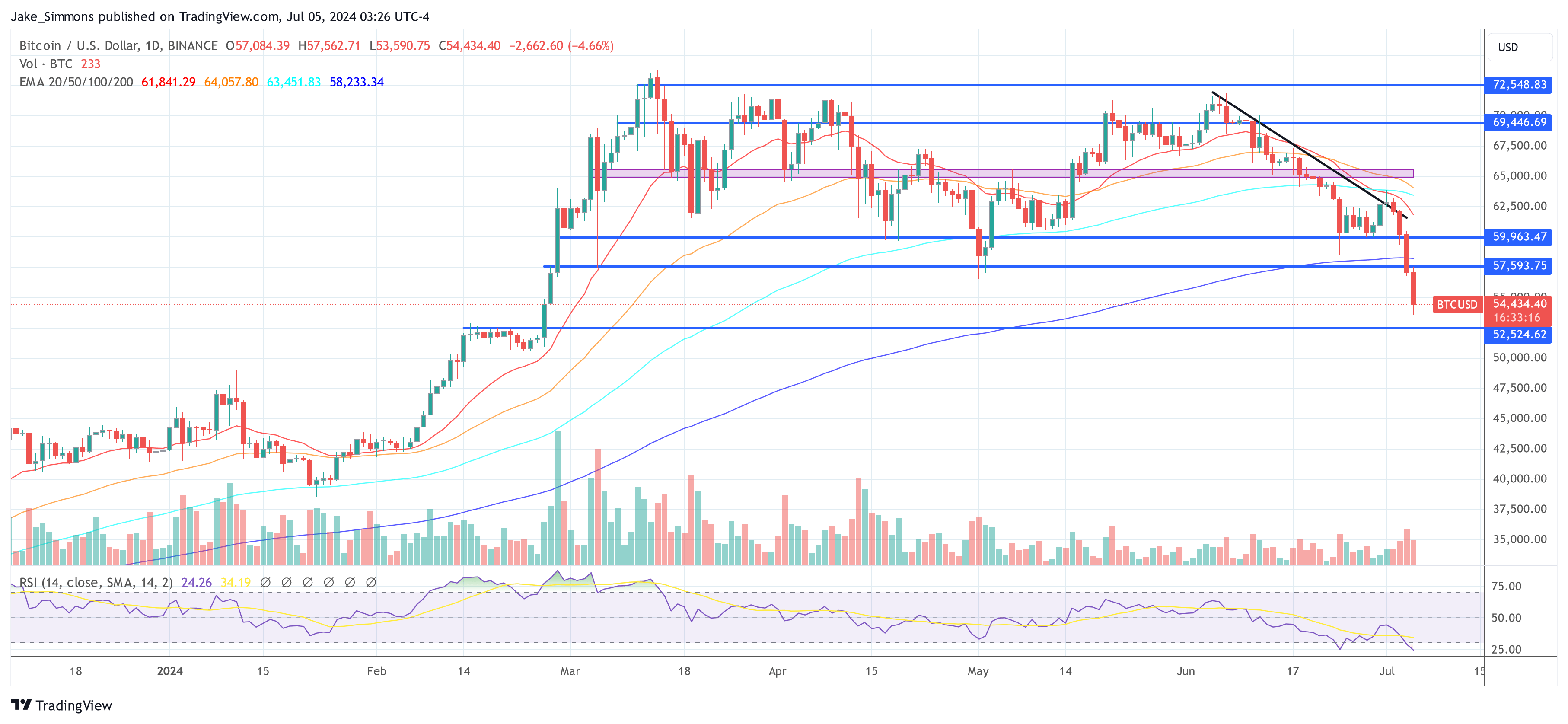#1 Mt. Gox’s Bitcoin Repayments
The impending distribution of 142,000 BTC by the defunct crypto exchange Mt. Gox has significantly stirred market anxiety. This amount, representing 0.68% of the total Bitcoin supply, is slated for distribution among the creditors of the exchange, which ceased operations in 2014 due to a major hacking event.
The distribution process has already seen large transfers, with 52,633 BTC moved in recent hours, suggesting that preparations are underway for a large-scale disbursement. Market observers and analysts are closely monitoring these movements, as the potential for massive selling by these creditors could inject considerable volatility into the market.
#2 German Government
The German government’s decision to begin liquidating its Bitcoin holdings has sent ripples through the market as well, with transactions recorded on major exchanges such as Bitstamp, Coinbase, and Kraken.
Over a fortnight, the government reduced its holdings from 50,000 BTC to 42,274 BTC. Market participants are understandably nervous that a continuous sell-off by a major holder like a government could lead to downward price pressure.#3 Massive Long Liquidations
The Bitcoin market has experienced a sharp increase in the liquidation of long positions, with a record $212 million worth of BTC liquidated just in the past 48 hours. This liquidation is the most significant since April 13, when $261 million worth of BTC longs were liquidated, leading to a steep decline in Bitcoin’s price from $68,500 to $61,600.
#4 BTC Miner Capitulation
Post the Bitcoin halving event on April 20, 2024, the mining reward was halved from 6.25 to 3.125 BTC, escalating economic pressures on miners. This reward reduction was anticipated to increase Bitcoin’s price, but the increase did not materialize, leaving miners with diminishing returns.
The current capitulation among miners is akin to previous market bottoms, such as the one seen following the FTX collapse, researchers from CryptoQuant recently revealed. Indicators of miner distress, including a significant 7.7% drop in hashrate and a plummet in mining revenue per hash to near all-time lows, means that many miners were forced to turn off their equipment and sell the BTC stash.

#5 Slowdown In US Spot Bitcoin ETF Activity
Contrary to expectations of a buoyant market driven by institutional investments through spot Bitcoin ETFs, there has been a noticeable slowdown in this sector. The anticipated “second wave” of institutional money has failed to materialize thus far, leading to subdued activity in the ETF space. Instead, the spot ETFs are currently experiencing a summer lull.
The enthusiasm surrounding Bitcoin ETFs has been unable to counteract the overwhelmingly negative market sentiment; however, its direct impact remains relatively minor. Leading on-chain analyst James “Checkmate” Check recently that only 20% of the spot volume is attributable to spot ETFs, with the remainder stemming from traditional spot markets. Over recent weeks, long-term BTC holders have been selling off their holdings in significant numbers, which has been the primary driver of the downward pressure on the market. At press time, BTC traded at $54,434.














